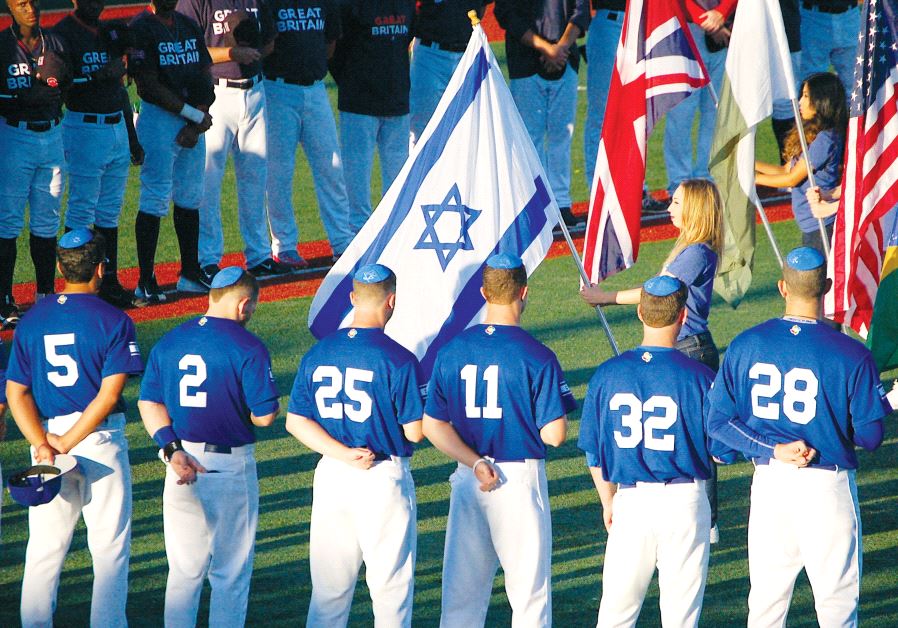Team Israel: Coming out swinging
A team comprised mostly of Jewish Americans will represent Israel in the World Baseball Classic that begins on Monday in Seoul.
 Team Israel stands to the sounds of ‘Hatikva’ before the WBC Qualifier Championship in September(photo credit: JOSH SOLOMON)Updated:
Team Israel stands to the sounds of ‘Hatikva’ before the WBC Qualifier Championship in September(photo credit: JOSH SOLOMON)Updated: